
 |
|
|
Corn
Volume 62 Number 9 Date 06/22/2017 WESTERN BEAN CUTWORM - The annual flight commenced this week in Columbia, Dodge, Green Lake and Rock counties. Based on projected degree-day accumulations, 25% emergence of the moth population is likely to occur by July 20 as far north as Wausau in Marathon County. Consultants and field scouts are advised to begin inspecting pre-tassel-stage corn for eggs and small larvae as soon as the first moths are captured or reported from a nearby trap location. TRUE ARMYWORM - Non-economic larval infestations affecting 1-6% of corn plants are common, with about 40% of fields surveyed in the last week showing at least a few plants with armyworm leaf-edge feeding damage and/or larvae. Increased vigilance is recommended since black light traps are registering moderate flights (27 moths at Janesville and 23 moths at Ripon from June 15-20) and because field conditions remain very favorable for armyworm problems. CORN ROOTWORM - Egg hatch has been underway since late May and should peak across much of the state before the end of the month. Corn root pruning assessments can begin about a week after peak egg hatch, or by early July. Continuous corn and areas with Bt performance issues should be the highest priority for inspection and root ratings. EUROPEAN CORN BORER - Surveys this week found minor infestations affecting 1-13% of plants in a few V7-V8 fields sampled in Columbia, Jefferson, Richland and Vernon counties. Moths and first-instar larvae were the development stages observed. The larvae appeared to have hatched on June 20 or 21. Chemical and biological insecticides targeting first-generation ECB are only effective for about a week after egg hatch, and must be applied in the next few days in fields where small larvae are emerging. The treatment window is expected to close by June 28 near Madison and La Crosse and around July 4 near Appleton and Hancock. -- Krista Hamilton, DATCP Entomologist 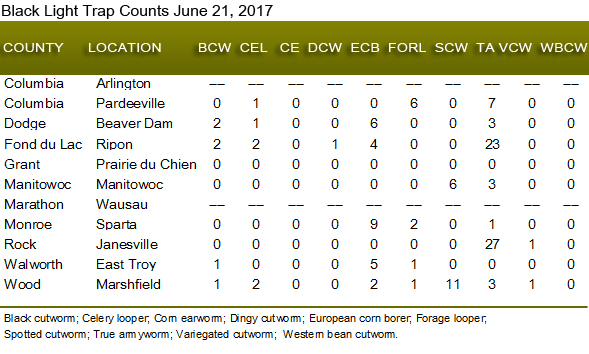
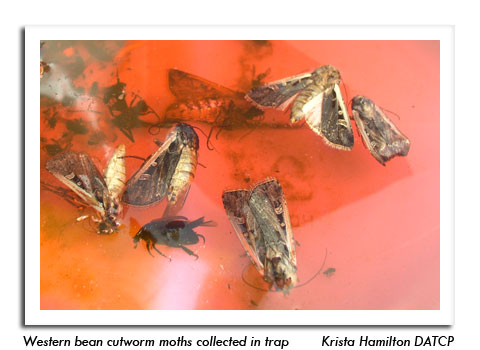
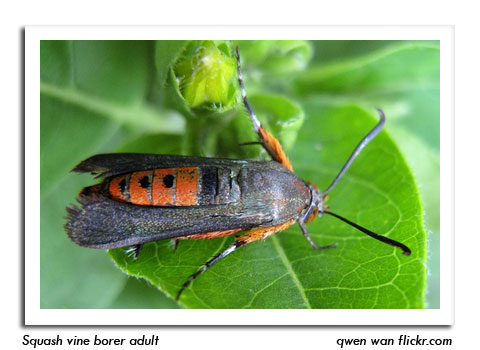
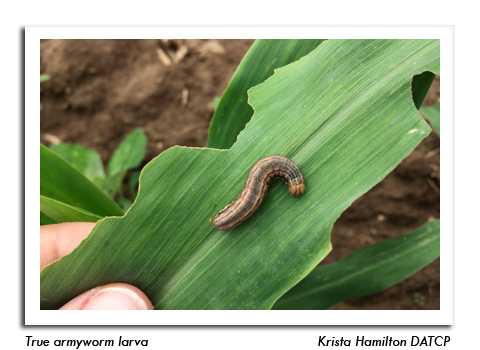
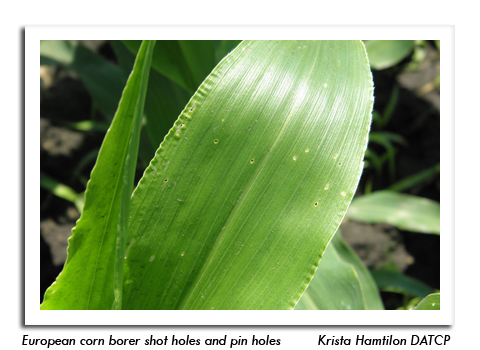
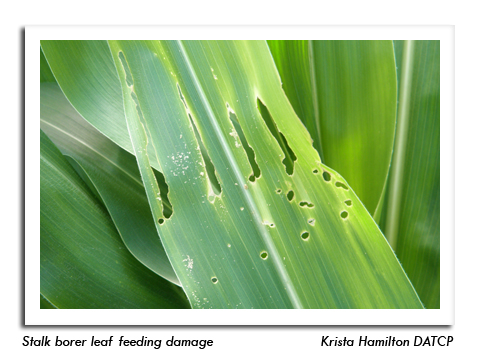
|
|
|